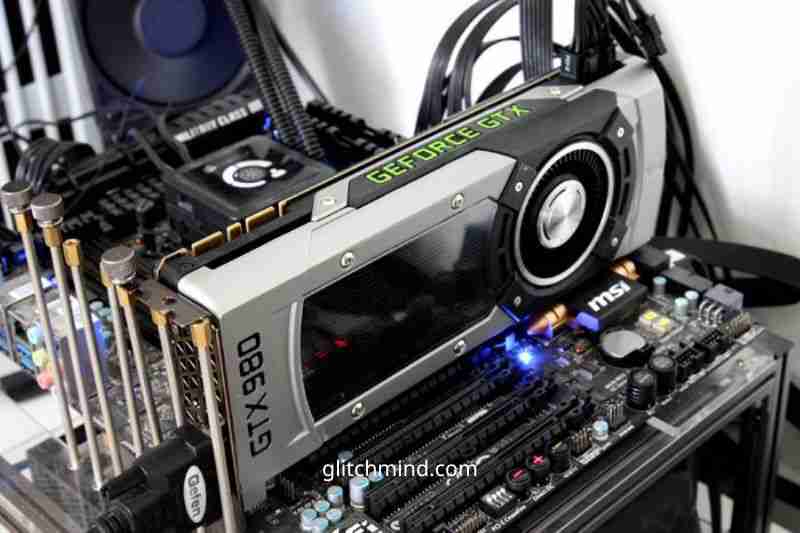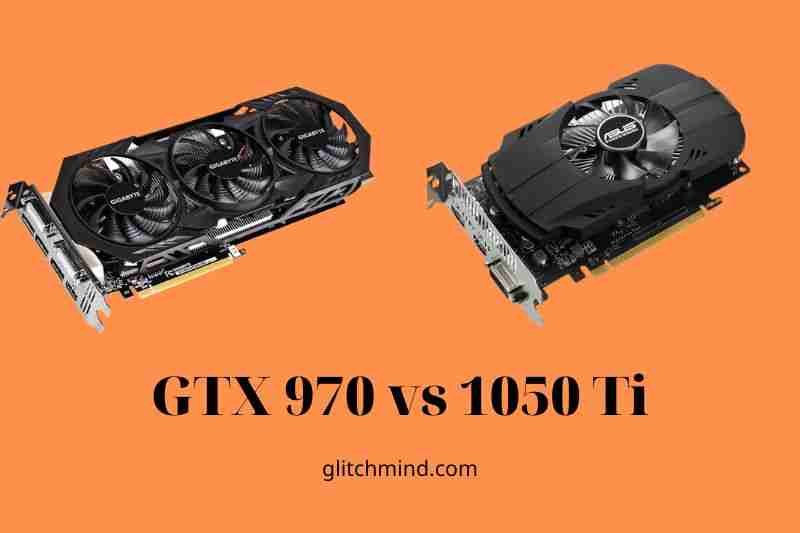GTX 970 vs 1050 Ti: Which Is Better? Ti are both great graphics cards, but which one is better for you depends on your needs.
If you’re looking for the best possible performance, then the GTX 970 is the clear choice. However, if you’re on a budget or don’t need the absolute best performance, then the 1050 Ti is a great option.
NVIDIA GeForce GTX 970
It’s GTX 980 might be the most expensive model in the Maxwell 2.0 collection of graphics cards. However, the price of these cards keeps them out of the price range of many middle-priced PC gamers. However, the GTX 970 is closer to being affordable at 329.
NVIDIA xx70 cards have always been characterized by mid-range pricing and capabilities that knock on the doors of premium graphics cards – especially when they are overclocked. After exploring the Maxwell 2.0 graphics card within the GTX 970, it can be affirmed that it will continue the trend.
It is less expensive than the GTX770 since it is priced at $329. Compare this with its counterpart, the GTX 770, which came with a cost of $399. The AMD closest comparable card comes in the R9 290X, priced at $549. The GTX 970 comes with 4 GB of video RAM as opposed to the GTX 770s 2GB video memory.
In our tests of synthetic benchmarks in our synthetic benchmarks, we found that GTX 970 blows past the GTX 770, and, more impressively, it even beats more than the GTX 780 as well.
However, the game performance wasn’t as impressive. Even even if you can prove that GTX 970 consistently delivers frame rate gains over the GTX 770, the gains aren’t enough to justify the need to upgrade.
In 1080p Full HD, we were in a position to play Battlefield V, Fallout 76, Overwatch 2, World War Z, and Apex Legends with 60 frames per second to 62 frames per second and keep frame rates at 60 frames per second.
In 1440p Quad HD, it was possible to enjoy Valorant at 96 frames per second to the rate of 96 frames per second and to keep frame rates at 96 frames per second.
For 2160p 4Kresolution, we could enjoy Valorant at 84 frames per second to the speed 84 frames per second and keep frame rates around 84 fps.
Pros
- 43% more gaming performance.
- Supports PhysX
- Supports G-Sync
- Supports ShadowPlay (allows game streaming and recording with minimal performance penalties)
Cons
- Based on obsolete technology (Nvidia Maxwell), there might not be any optimizations to performance for the current games and applications.

NVIDIA GeForce GTX 1050 Ti
Its GTX 1060 6GB could be the entry-level model of the most recent Pascal series of graphics cards. However, their price puts them out of the price range of most users on a budget. However, GTX 1050 Ti GTX 1050 Ti is closer to being affordable, costing 169.
NVIDIA series of xx50 cards have been characterized by low-cost costs and performance that knocks at the doors of basic graphics cards – mainly when they are the clock is pushed to the limit. After having the opportunity to thoroughly examine this Pascal graphics card in GTX 1050 Ti GTX 1050 Ti, we can say that, without a doubt, it’s a continuation of the trend.
The GTX 1050 Ti comes with 4 GB of RAM as opposed to the GTX 950s 2 GB video memory. In our benchmarks that simulate real-world performance, it is clear that the GTX 1050 Ti blows past the GTX 950, and, amazingly, it almost beats the GTX 960.
Unfortunately, the gaming performance was not as good. Although you can prove that the GTX 1050 Ti consistently delivers higher frame rates than the GTX 950, the gain is not enough to justify a purchase. If it’s a valid upgrade will depend on the type of graphics card you’re upgrading to from.
Those with a GTX 950 will not see an astronomical rise in frame rates when they pay higher for the GTX 1050 Ti. Also, those still using the R9380’s R9280 graphics cards won’t have any reason to switch teams until.
To play 1080p Full HD, we could play Valorant at 80 fps up to 80 fps and keep frame rates between 80 and 80 frames per second. When playing 1440p Quad HD, we could enjoy Valorant at 66 frames per second to 66 fps and keep frame rates at 66 frames per second.
Pros
- The power consumption is 73 watts less. This could be a good argument in case your current less power supply isn’t enough to support this GeForce GTX 970, less heat
- It’s a brand new product so it could offer better long-term support.
- Supports PhysX
- Supports G-Sync
- Supports ShadowPlay (allows streaming and recording of games at the least performance penalty)
- The Direct3D Async Compute feature is supported.
Cons
- Based on an obsolete design (Nvidia Pascal), there may be no performance enhancements available for modern games and applications.

GTX 970 vs 1050 Ti
1. General information
The general information section of the graphic cards comparison list includes the release date, the type, overall rating, and other vital information to determine the winner NVIDIA GeForce GTX 970 and NVIDIA GeForce GTX 1050 Ti.
| GTX 970 | GTX 1050 Ti | |
| Place in performance rating | 146 | 237 |
| Place by popularity | 59 | 4 |
| Value for money | 36.89 | 16.83 |
| Architecture | Maxwell (2014−2018) | Pascal (2016−2021) |
| GPU code name | GM204 | N17P-G1 |
| Market segment | Desktop | Desktop |
| Release date | 19 September 2014 (8 years ago) | 25 October 2016 (6 years ago) |
| Launch price (MSRP) | $329 | $139 |
| Current price | $109 (0.3x MSRP) | $192 (1.4x MSRP) |
2. Technical specifications
Which GPU is superior to NVIDIA GeForce GTX 970 and NVIDIA GeForce GTX 1050 Ti? The graphics card hierarchy’s primary components are this GPU’s fabrication method, energy consumption, turbo, and base speed.
| GTX 970 | GTX 1050 Ti | |
| Pipelines / CUDA cores | 1664 | 768 |
| Stream Processors | 1664 | 768 |
| Core clock speed | 1050 MHz | 1290 MHz |
| Boost clock speed | 1178 MHz | 1392 MHz |
| Number of transistors | 5,200 million | 3,300 million |
| Manufacturing process technology | 28 nm | 16 nm |
| Thermal design power (TDP) | 145 Watt | 75 Watt |
| Maximum GPU temperature | 98 °C | 97 °C |
| Texture fill rate | 109 billion/sec | 66.82 |
| Floating-point performance | 3,920 gflops | 2,138 gflops |
3. Compatibility, dimensions and requirements
Let’s look at the different ways graphics cards NVIDIA GeForce GTX 970 and NVIDIA GeForce GTX 1050 Ti can be found in different dimensions (length), connectors, and different types of interfaces.
| GTX 970 | GTX 1050 Ti | |
| Bus support | PCI Express 3.0 | no data |
| Interface | PCIe 3.0 x16 | PCIe 3.0 x16 |
| Length | 10.5″ (26.7 cm) | 145 mm |
| Height | 4.376″ (11.1 cm) | no data |
| Width | 2-slot | 2-slot |
| Recommended system power (PSU) | 500 Watt | no data |
| Supplementary power connectors | 2x 6-pins | None |
| SLI options | + | no data |
4. Memory
Graphics card memory is essential in gaming and applications that use graphics. The card can perform faster and better performance when it has greater memory capacity and the right memory type. That’s precisely the difference between NVIDIA GeForce GTX 970 and NVIDIA GeForce GTX 1050 Ti.
| GTX 970 | GTX 1050 Ti | |
| Memory type | GDDR5 | GDDR5 |
| Maximum RAM amount | 4 GB | 4 GB |
| Memory bus width | 256 Bit | 128 Bit |
| Memory clock speed | 7.0 GB/s | 7 GB/s |
| Memory bandwidth | 224 GB/s | 112 GB/s |
| Shared memory | – | – |
5. Video outputs and ports
Find out the difference in the ports that are added to two different graphics cards—the difference between NVIDIA GeForce GTX 970 and NVIDIA GeForce GTX 1050 Ti.
| GTX 970 | GTX 1050 Ti | |
| Display Connectors | Dual Link DVI-I, HDMI 2.0, 3x DisplayPort 1.2 | 1x DVI, 1x HDMI, 1x DisplayPort |
| Multi monitor support | 4 displays | no data |
| HDMI | + | + |
| HDCP | + | no data |
| Maximum VGA resolution | 2048×1536 | no data |
| G-SYNC support | + | + |
| Audio input for HDMI | Internal | no data |
6. Technologies
Let’s take a look at the difference. It is worth noting it is true that NVIDIA and AMD make use of different techniques.
| GTX 970 | GTX 1050 Ti | |
| GameStream | + | no data |
| GeForce ShadowPlay | + | no data |
| GPU Boost | 2.0 | no data |
| GameWorks | + | no data |
| VR Ready | no data | + |
| Ansel | no data | + |
7. API Support for API
The battle between two main contenders, NVIDIA GeForce GTX 970 and NVIDIA GeForce GTX 1050 Ti, is almost over. Support for hardware (API) cannot significantly impact the overall performance and is not taken into consideration in synthetic benchmarks and other performance tests.
| GTX 970 | GTX 1050 Ti | |
| DirectX | 12 (12_1) | 12 (12_1) |
| Shader Model | 6.4 | 6.4 |
| OpenGL | 4.4 | 4.6 |
| OpenCL | 1.2 | 1.2 |
| Vulkan | 1.1.126 | 1.2.131 |
| CUDA | + | + |
8. Mining hashrates
| GTX 970 | GTX 1050 Ti | |
| Bitcoin / BTC (SHA256) | 478 Mh/s | 326 Mh/s |
| Decred / DCR (Decred) | 1.51 Gh/s | 1.01 Gh/s |
| Ethereum / ETH (DaggerHashimoto) | 22.21 Mh/s | 12.62 Mh/s |
| Monero / XMR (CryptoNight) | 0.48 kh/s | 0.3 kh/s |
| Zcash / ZEC (Equihash) | 291.61 Sol/s | 156.48 Sol/s |
Why is Nvidia GeForce GTX 970 better than Gigabyte GeForce GTX 1050 Ti?
- 1.42 TFLOPS more floating-point performance
- 26 GPixel/s more the pixel rate
- 47.1 GTexels/s with a higher texture rate
- 111.9GB/s More memory bandwidth
- 128bit memory bus with a wider memory bandwidth
- 896 additional shading units
- 1900 million more transistors
- 56 additional Texture mapping units (TMUs)
Read also:
